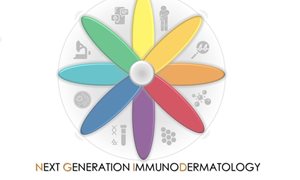12 December 2019
Treatment of psoriasis is associated with improved quality of life (QOL) in those with the disease. However, in daily clinical practice, the association between the degree of psoriasis clearance and QOL has not been studied to date, especially in the pediatric population.
Objectives
To identify the association between the degree of psoriasis improvement (as measured by the Psoriasis Area Severity Index [PASI] and body surface area [BSA] response) and QOL (as measured by the Children's Dermatology Life Quality Index [CDLQI]) in pediatric psoriasis, and to assess the association of treatment type with QOL, independent of psoriasis improvement.
Design, Setting, and Participants
Data used in this single-center cohort study were extracted from the Child-CAPTURE (Continuous Assessment of Psoriasis Treatment Use Registry), a prospective, observational, daily clinical practice cohort of all children (aged <18 years) with a psoriasis diagnosis who attended the outpatient clinic of the Department of Dermatology at the Radboud University Medical Center in Nijmegen, the Netherlands, between September 3, 2008, and May 4, 2018. All records of treatment episodes with CDLQI, PASI, and BSA scores were included in the analysis.
Exposures
Patients were treated according to daily clinical care. Treatments were clustered into topical, dithranol, conventional systemic, and biological treatments. Because of low numbers of UV-B phototherapy, this treatment was not assessed.
Main Outcomes and Measures
Primary outcomes were mean change of CDLQI scores per PASI and BSA response categories (0 to <50, 50 to <75, 75 to <90, and ≥90) and mean CDLQI change per treatment categories.
Results
In total, 319 patients (median [interquartile range] age, 10.0 [7.0] years; 183 female [57.4%]) were analyzed for PASI score improvement (399 treatment episodes) and improvement in BSA involvement (366 treatment episodes). The greatest improvements in CDLQI scores were seen in the PASI ≥90 response category, with an estimated marginal mean change in CDLQI score of -6.6 (95% CI, -7.5 to -5.7). The greatest improvements in CDLQI scores were also observed in the BSA ≥90 response category, with an estimated marginal mean change in CDLQI score of -6.8 (95% CI, -7.5 to -6.1). Systemic treatment demonstrated a greater degree of improvement of CDLQI compared with topical treatment, independent of PASI response categories.
Conclusions and Relevance
This cohort study in a real-world setting found that the greatest improvements in QOL were associated with PASI 90 or greater, a decrease in BSA involvement of 90% or greater, and systemic treatments. These findings suggest that reaching PASI 90 or greater and decreasing BSA involvement by at least 90% may be clinically meaningful treatment goals that will help pediatric patients with psoriasis reach optimal QOL.
Publication
Association Between Quality of Life and Improvement in Psoriasis Severity and Extent in Pediatric Patients.
Bruins FM, Bronckers IMGJ, Groenewoud HMM, van de Kerkhof PCM, de Jong EMGJ, Seyger MMB.

Abstract
ImportanceTreatment of psoriasis is associated with improved quality of life (QOL) in those with the disease. However, in daily clinical practice, the association between the degree of psoriasis clearance and QOL has not been studied to date, especially in the pediatric population.
Objectives
To identify the association between the degree of psoriasis improvement (as measured by the Psoriasis Area Severity Index [PASI] and body surface area [BSA] response) and QOL (as measured by the Children's Dermatology Life Quality Index [CDLQI]) in pediatric psoriasis, and to assess the association of treatment type with QOL, independent of psoriasis improvement.
Design, Setting, and Participants
Data used in this single-center cohort study were extracted from the Child-CAPTURE (Continuous Assessment of Psoriasis Treatment Use Registry), a prospective, observational, daily clinical practice cohort of all children (aged <18 years) with a psoriasis diagnosis who attended the outpatient clinic of the Department of Dermatology at the Radboud University Medical Center in Nijmegen, the Netherlands, between September 3, 2008, and May 4, 2018. All records of treatment episodes with CDLQI, PASI, and BSA scores were included in the analysis.
Exposures
Patients were treated according to daily clinical care. Treatments were clustered into topical, dithranol, conventional systemic, and biological treatments. Because of low numbers of UV-B phototherapy, this treatment was not assessed.
Main Outcomes and Measures
Primary outcomes were mean change of CDLQI scores per PASI and BSA response categories (0 to <50, 50 to <75, 75 to <90, and ≥90) and mean CDLQI change per treatment categories.
Results
In total, 319 patients (median [interquartile range] age, 10.0 [7.0] years; 183 female [57.4%]) were analyzed for PASI score improvement (399 treatment episodes) and improvement in BSA involvement (366 treatment episodes). The greatest improvements in CDLQI scores were seen in the PASI ≥90 response category, with an estimated marginal mean change in CDLQI score of -6.6 (95% CI, -7.5 to -5.7). The greatest improvements in CDLQI scores were also observed in the BSA ≥90 response category, with an estimated marginal mean change in CDLQI score of -6.8 (95% CI, -7.5 to -6.1). Systemic treatment demonstrated a greater degree of improvement of CDLQI compared with topical treatment, independent of PASI response categories.
Conclusions and Relevance
This cohort study in a real-world setting found that the greatest improvements in QOL were associated with PASI 90 or greater, a decrease in BSA involvement of 90% or greater, and systemic treatments. These findings suggest that reaching PASI 90 or greater and decreasing BSA involvement by at least 90% may be clinically meaningful treatment goals that will help pediatric patients with psoriasis reach optimal QOL.
Publication
Association Between Quality of Life and Improvement in Psoriasis Severity and Extent in Pediatric Patients.
Bruins FM, Bronckers IMGJ, Groenewoud HMM, van de Kerkhof PCM, de Jong EMGJ, Seyger MMB.
Related news items

Large NWA ORC grant awarded for national skin research: Next Generation ImmunoDermatology
23 March 2022Research for better treatment methods for chronic skin diseases.
go to page
Tight controlled dose reduction of biologics in psoriasis patients
7 May 2020 Published in JAMA Dermatology, RIHS researcher Selma Atalay and colleagues investigated in a randomized controlled trial a tight controlled dose reduction strategy of the biologics adalimumab, etanercept and ustekinumab in psoriasis patients. go to page
First BeNeFit funding granted for psoriasis
17 January 2020 RIHS researchers Elke de Jong and Juul van den Reek of Dermatology Radboudumc and Dermatology Ghent received a grant of 1.6 million euros for investigating dose reduction of the newest biologics for psoriasis. go to page

